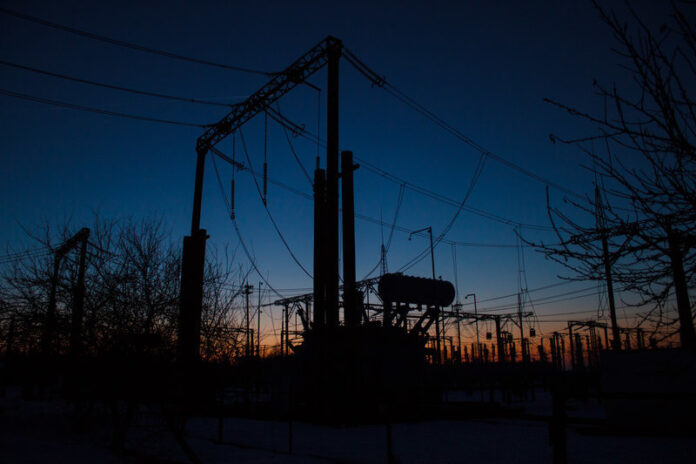Texas Gov. Greg Abbott sent a letter to the state’s Public Utility Commission (PUC) directing it to take immediate action to improve electric reliability across the state.
Abbott says his order was a necessary response to the legislature’s insufficient response to the state’s electric power reliability crisis, due to a waning supply of reliable baseload power.
A deep February freeze caused multiday blackouts across much of the state, and resulted in 151 people dying.
The power outages came after most wind and solar power in the state went offline in a matter of hours. Fossil fuel facilities couldn’t take up all the slack, in part, because several coal-fueled power plants in the state had recently closed, and the Electric Reliability Council of Texas (ERCOT), the state’s grid operator under the authority of the PUC, diverted power from gas pipelines and switching stations to homes. This resulted in resulted in the pipes freezing and natural gas facilities finding themselves out fuel and unable to operate.
Subsequently, in June, ERCOT warned the state’s electricity supply margin was falling dangerously low, and requested homeowners and businesses change their electricity use patterns to avoid black outs.
Legislature’s Action Falls Short
During 2021 regular legislative session, the only bills related to Texas’ electric power supply that made it to Gov. Abbott’s desk for his signature changed who could serve on ERCOT’s board and how they are selected, and required electric power generators and the transmission grid to be weatherized in order to make them better able to withstand extreme weather.
Neither of those bills, however, addressed the declining supply of reliable on-demand power that has traditionally been produced by coal, natural gas, and nuclear power.
Senate Bill 1278, sponsored by state Sen. Kelly Hancock (R-Fort Worth), would have required Texas wind and solar companies to pay the costs for backup or supplemental power needed whenever they cannot deliver electricity reliably to the grid. Currently, those costs are imposed on ratepayers.
“[ERCOT] shall ensure that ancillary services necessary to facilitate the transmission of electric energy are available at reasonable prices … [and] ancillary services costs incurred by the ERCOT … to address reliability issues arising from the operation of intermittent wind and solar resources must be directly assigned by the ERCOT … to those resources,” said the bill.
SB 1278 passed the Senate by a wide margin, but the Texas House adjourned without considering it.
Governor Abbott Responds
After the legislative session ended with no action addressing the root cause of Texas’ growing power shortfall, Abbott issued a directive to the PUC to act to better ensure a sufficient supply of reliable power in the state.
Among other orders, Abbott demanded the PUC, “[f]oster the development and maintenance of adequate and reliable sources of power, like natural gas, coal, and nuclear power … [by] [providing incentives to] maintain the reliable electric generating plants our state needs … for reliability purposes.”
The order also directs the PUC to “[a]llocate reliability costs to generation resources that cannot guarantee their own availability, such as wind or solar power. Electric generators are expected to provide enough power to meet the needs of all Texans. When they fail to do so, those generators should shoulder the costs of that failure. Failing to do so creates an uneven playing field between non-renewable and renewable energy generators and creates uncertainty of available generation in ERCOT.”
‘Sending a Message’
Abbott’s action has both practical and symbolic value, says Merrill Matthews, Jr., resident scholar with the Institute for Policy Innovation.
“Gov. Abbott directive to the Texas PUC is important for practical reasons, as an effort to ensure the state’s grid is supplied with more reliable and affordable energy sources, such as coal, natural gas, and nuclear, to ensure a widespread blackout like the one last February never occurs again,” Matthews said. “Symbolically, Abbott’s action is important because Texas is by far the nation’s leading state in wind energy production, and environmentalists have used that fact for years to imply states can and should greatly expand their reliance on wind and solar power.
“By shifting the focus back to reliable energy sources, Abbott is sending a message that clean energy has a long way to go before it becomes a major source of reliable energy—for Texas or any other state,” Matthews said.
Gov. Abbott’s order to Texas’ grid planners recognizes that “energy only” pricing cannot promote adequate reliability, says Robert Bradley, Jr., CEO of the Institute for Energy Research.
“One major problem with wind and solar is that both disappear at crucial times,” said Bradley. “A second problem is that without fuel costs, highly subsidized wind and solar outbid and idle reliable generation during sunny and windy conditions, resulting in premature retirements, a lack of new entry, and inadequate upgrades of gas-fired and coal-fired generation.
“The overall result has been “greenouts” and conservation orders for Texas, an energy-rich state that once had a proud, secure grid,” Bradley said.
‘Common-Sense Regulation’
February’s power failure demonstrates a fundamental weakness of wind and solar power sources, says Gary Stone, vice president of engineering with Five States Energy Company.
“February’s power disaster in Texas points out the need for common-sense regulation to improve the availability of electric power,” said Stone. “Solar and wind energy each has its own list of weaknesses, and until storage technology catches up with generation technology, Texans need an uninterruptable and secure power generation fuel, and that fuel is natural gas.
“Because political whims and tax credits do not power homes in the dead of winter or when the thermometer tops 100 degrees, the Governor’s order is long overdue,” Stone said.
H. Sterling Burnett, Ph.D. (hburnett@heartland.org) is the managing editor of Environment & Climate News.


























